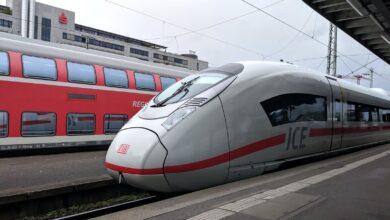The UN announced a “colossal” growth in Poland’s GDP thanks to the work of Ukrainian refugees

After the start of the full-scale war in Ukraine, Poland became one of the main countries that opened its borders to millions of Ukrainian refugees. Since February 2022, the flow of people fleeing hostilities has created a unique socio-economic situation for the Polish state. Warsaw not only quickly organized a system of humanitarian aid, medical care, education and housing for the displaced, but also provided them with ample opportunities to work legally and integrate into the local economy. This step, as analysts later showed, turned out to be strategically justified not only from a humanitarian, but also from an economic point of view. In a new report prepared by the UN Refugee Agency, significant growth in Poland’s GDP is noted, which was largely due to the labor participation of Ukrainians.
A new report prepared by the United Nations Refugee Agency (UNHCR) together with the consulting company Deloitte makes it possible to objectively assess the scale of the impact of Ukrainian labor migration on Poland’s economy in 2024. The data of the analysis debunk numerous stereotypes and demonstrate that Ukrainian refugees have not become a burden on the Polish budget, but an important catalyst for economic growth. As reported Reuters.
During the presentation of the report, UNHCR spokesperson Rafal Kostszynskii emphasized that the results of the study disprove a number of common myths, according to which refugees seem to create additional pressure on the labor market, displace local workers, reduce the level of wages or create an excessive burden on social funds. According to Kostshinskyi, none of these negative scenarios came true.
The report clearly states: thanks to the policy of the Polish authorities, which allowed Ukrainians to quickly gain access to the labor market and create small businesses, the Polish economy received an additional boost to growth. According to experts’ calculations, the contribution of Ukrainian refugees to the country’s gross domestic product in 2024 was about 2.7% of GDP growth. Such an increase is estimated as “colossal” for the European economy, which in general experienced a difficult period of recessionary risks and structural transformations after the pandemic and against the background of the energy crisis.
As Kevin Allen, the UNHCR representative in Poland, said, the opening of employment opportunities for refugees was the decisive factor: “By allowing Ukrainian refugees to start working and open small businesses, Poland significantly strengthened its economic base.”
Another important conclusion of the study is the absence of a negative impact on the employment of the Poles themselves. The report notes that the level of employment among the Polish population did not decrease after the arrival of a large number of Ukrainians. On the contrary, in some sectors of the economy, there is even a local increase in wages, which is explained by the expansion of domestic demand and productivity growth. In other words, instead of competition between local residents and migrants, an additional economic multiplier was formed.
The authors of the report also drew attention to the specifics of the labor integration of Ukrainians in the Polish economy. A significant part of refugees is forced to work in positions that do not correspond to their professional qualifications or level of education. According to statistics, only about a third of Ukrainians with a higher education hold jobs that require a corresponding diploma or scientific degree. Most are forced to choose jobs with lower requirements, which allow for faster integration into the labor market, but do not allow full realization of professional potential.
In addition, insufficient knowledge of the Polish language also prevents many people from more active integration. Despite this, even in such positions, Ukrainian refugees filled a significant number of vacancies that traditionally remained unfilled on the Polish market. It is about work in the agricultural sector, construction, service sector, transport industry, care for the elderly, logistics, hotel and restaurant business, etc. These segments of the economy have been suffering from labor shortages for many years due to the migration of Poles themselves to Western Europe.
The increase in the specialization of the Polish economy, which is mentioned in the report, is connected precisely with the filling of these vacant niches by Ukrainian workers. The labor market has become more flexible, the share of people employed in areas that previously did not have the necessary human resources has increased. This allowed the business to expand its activities, avoid disruptions in production and service chains, and increase export potential.
Another important point of the report was the question of the financial balance between Poland’s expenses for helping refugees and their contribution to the country’s economy. According to Deloitte’s calculations, Ukrainian refugees generally left more money in the Polish economy than they took abroad in the form of remittances to their homeland. This is explained by the high share of consumer spending that remains within the Polish market: rent payments, purchases of goods and services, income taxation, etc. Thus, refugees not only work, but also actively consume, supporting domestic demand.
The report emphasizes that overcoming barriers to the inclusion of Ukrainians in the Polish labor market could provide an additional macroeconomic increase of 1.6 billion US dollars per year.
Poland has become the main host country for Ukrainian migrants, sheltering more than a million Ukrainian citizens and taking first place in the number of refugees, as well as being among the six most favorable countries for Ukrainian migrants. At the same time, more and more often Ukrainians themselves talk about the growth of negative attitudes in society and complain about cases of persecution. Polish government officials assure that the state will not use the forced return of Ukrainians home and reject claims of threats or unfair decisions, but admit that after the elections, corrections in social policy may be considered.
In a broader perspective, experts emphasize that Poland actually received a unique demographic resource, which in the future can partially compensate for the problems with the aging of the population and the reduction of the workforce. However, the realization of this potential will require further work on integration, language learning, confirmation of diplomas and professional qualifications.
The Polish example is already being actively studied in other European countries, where they are also discussing ways of rational integration of refugees, avoiding both social marginalization and the danger of excessive budget expenditures. According to experts, the key lesson of Warsaw was the timely opening of the labor market and the creation of the most simplified procedures for the legal employment of new arrivals.





